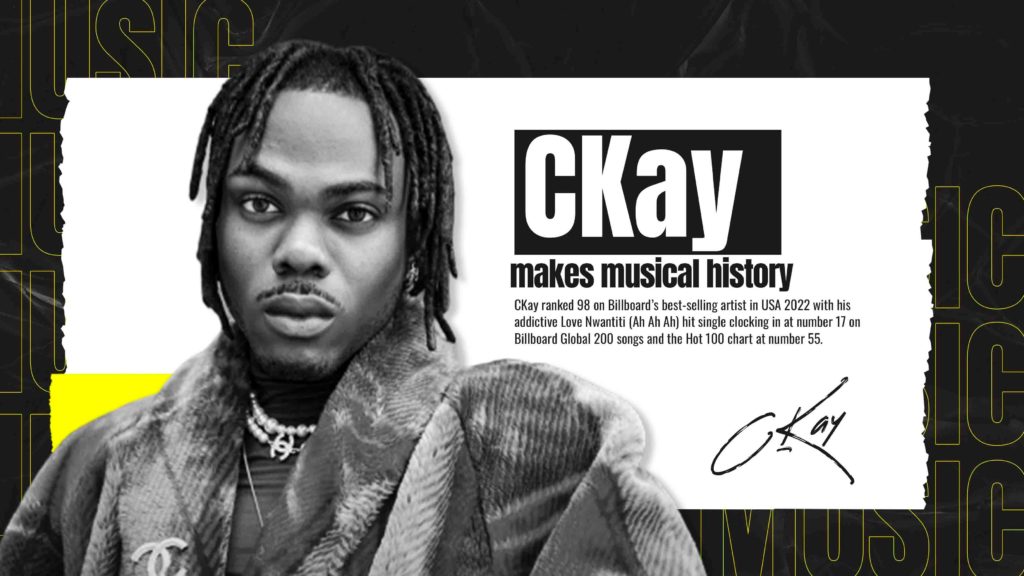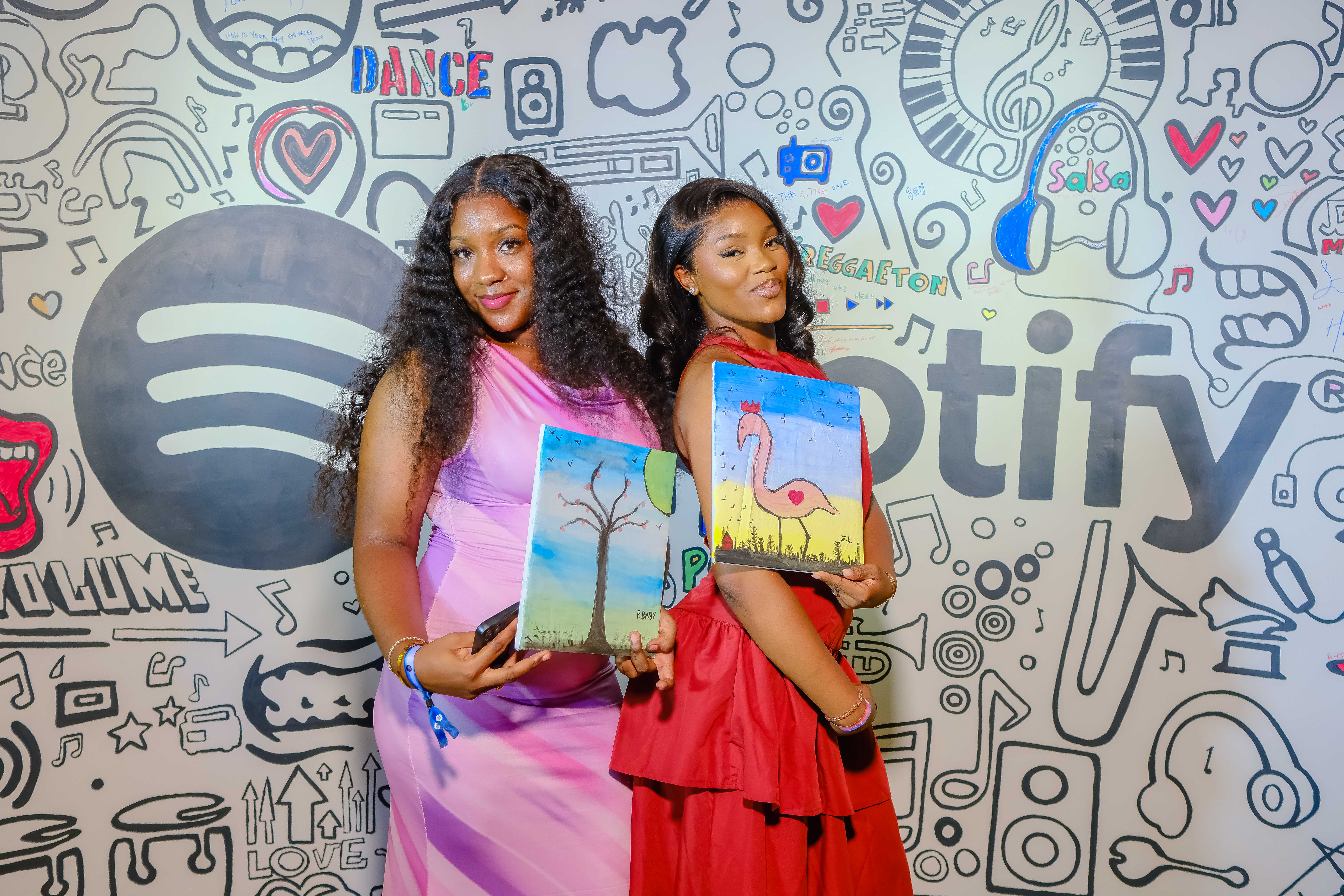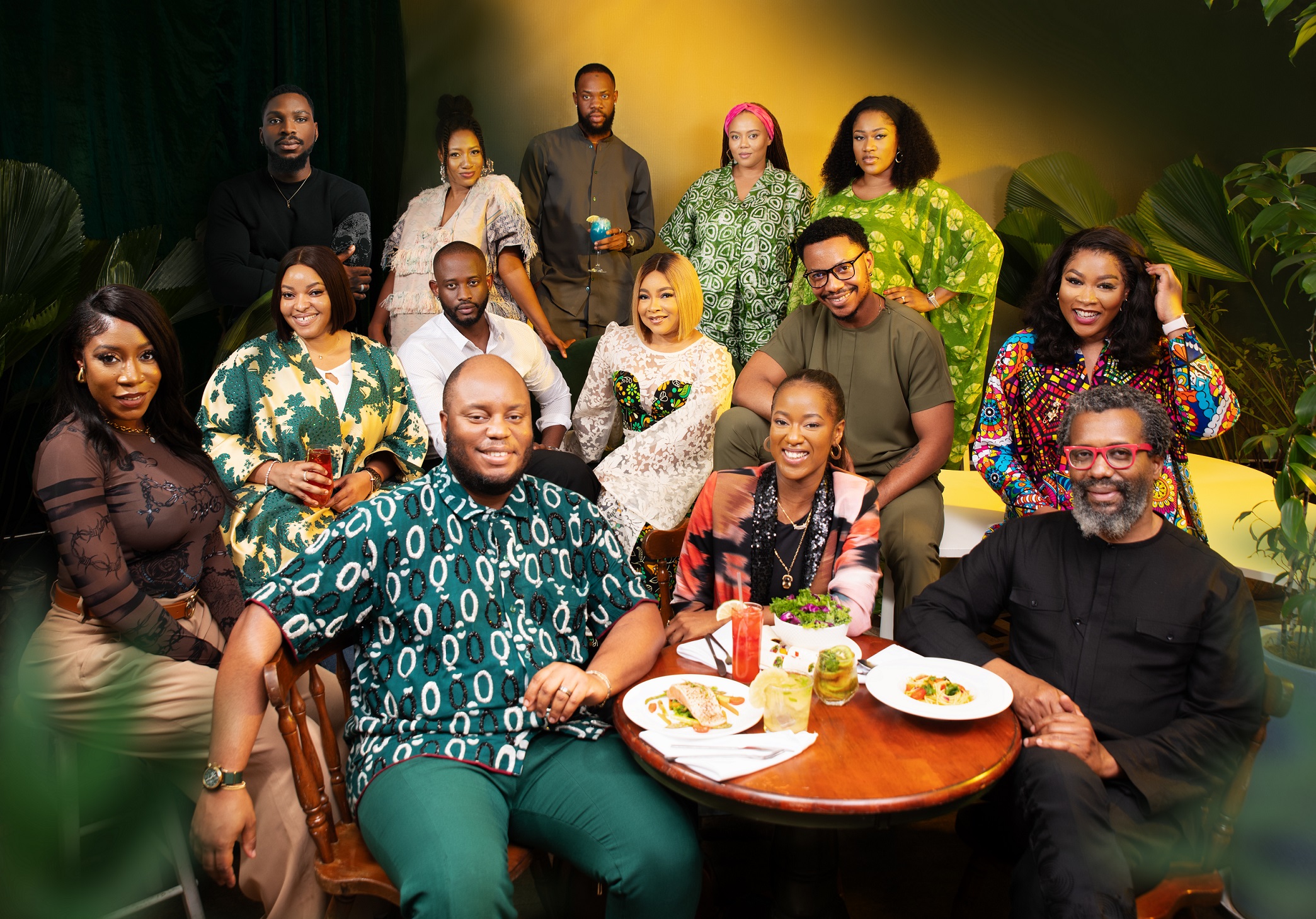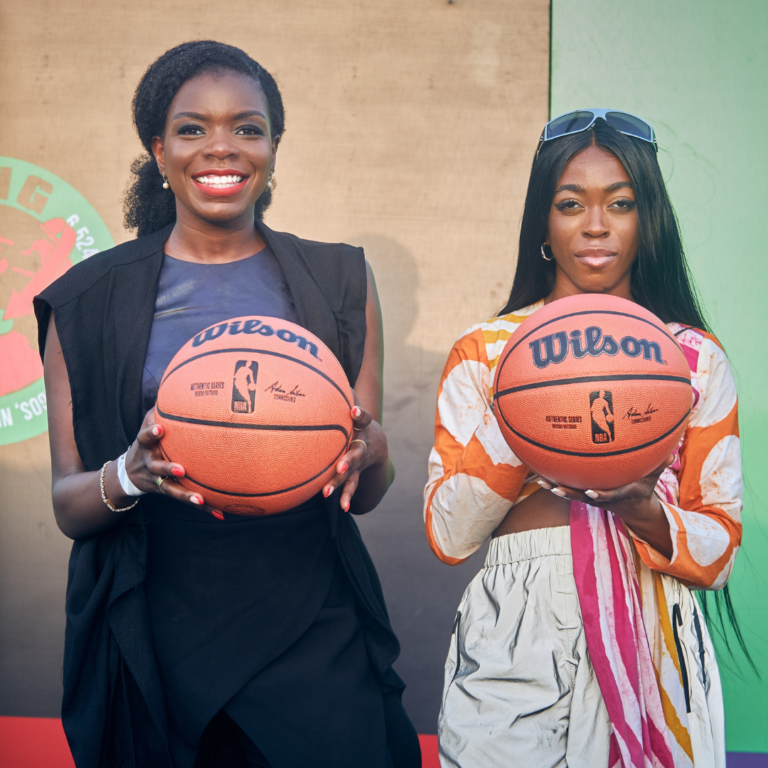Nigerian singing sensation and producer, CKay, has made musical history as the first-ever African artist to feature in the top 100 Billboard Artist year-end chart, a milestone that underpins Afrobeat’s meteoric rise and shakeup of the global music scene.
By Seth Onyango, Bird story agency

The popular musician came in at number 98 on Billboard’s best-selling artist in USA 2022 with his addictive hit single, Love Nwantiti (Ah Ah Ah), clocking in at number 17 on Billboard Global 200 songs and the Hot 100 chart at number 55.
2022 has been another stellar year for African music and the success is likely to continue through 2023, with Nigerian artist, Burna Boy, set for a history-making concert at London Stadium on June 3, the first African artist to headline a UK stadium, according to Rolling Stone.
On April 2, CKay’s Love Nwantiti, which first debuted in 2019 and went viral with a string of international remixes on TikTok, topped the inaugural Billboard U.S. Afrobeats Songs Chart. It has surpassed 1 billion streams on Spotify and is also one of the year’s most Shazammed songs.
Tems, Wizkid and Fireboy DML also made appearances on the Billboard 100 with their hits Wait For U, Essence remix and Peru. Tems co-wrote Lift Me Up with superstar, Rihanna, a track featured in the recently premiered Black Panther 2: Wakanda Forever
Trends show that African music, not just from Nigeria, the biggest export market, but also from South Africa, the Democratic Republic of Congo and Tanzania, is making waves globally. It is no longer surprising to hear the track Jerusalema, from South Africa’s Master KG, on European or American radio, or for Afro tunes to feature on celebrity social media posts, or for African artists to appear on highly-rated American talk shows.
African musicians are also coming into money. Burna Boy (AKA the African giant) filled New York City’s Madison Square Garden to capacity, becoming the first African artist to sell out the famed Garden of Eden, performing in front of over 20k people.
RELATED: Burna Boy, Coachella and the Humbling Of An African Giant
International music stars are also collaborating more with African musicians. Although this is not new, it is only in recent years that these collaborations have gone mainstream. This year alone, Rema featured Selena Gomez (Calm Down), Burna Boy teamed up with Ed Sheeran (For My Hand), and Future featured Tems and Drake on Wait For U.
Over the past decade, the continent’s music landscape has changed dramatically, with new fusions blended into existing genres to create a magical cocktail, birthing superstars like Fally Pupa, DJ Maphorisa and more. These artists and others have also become some of Africa’s most-cherished brand ambassadors. With more African musicians collaborating on songs across the continent, music is fast becoming more than entertainment.
According to United Nations Education, Science and Cultural Organisation (UNESCO), music fosters what African politics has struggled to achieve – unity. African music is also increasingly seen in totality rather than in isolated artists or styles. Billboard, the US publication that monitors reviews, events and styles related to the music industry, perhaps acknowledged it best:
“Over the past couple of years, Africa has exploded as a major player on the global music scene. From U.S. labels scooping up breakout African artists such as Burna Boy, Tiwa Savage, and Davido to the ascendancy of African streaming platform Boomplay and the inroads of majors Universal, Sony, and Warner Bros. on the continent, the stage is set for a lucrative new future for African music,” reads its latest review of Africa’s music scene.
As the continent’s music scene explodes (along with its population and economy), African musicians are grossing millions from world charts and securing major deals with international recording labels. Big royalties from various entertainment media like Skiza, YouTube, Boomplay and Spotify are at the heart of this movement.
Artists are now more aware of the gaps in the industry and the needs of their fans, with coveted honours like the All Africa Music Awards, BET and Grammys putting African artists in the spotlight. Legendary musical names are also not fading; Salif Keita, Yousour N’dor, Fatoumata Diawara and Anjelique Kidjo are still drawing large numbers, partly due to the exposure but also the timelessness of their music. Even “fallen” maestros like Manu Dibango, Lucky Dube, Franco Rocherau and Kanda Bongo Man are still in the groove posthumously.
<script src=”https://bird.africanofilter.org/hits/counter.js” id=”bird-counter” data-counter=”https://bird.africanofilter.org/hits/story?id=639164da7aaab506f452db0e&slug=ckay-makes-musical-history-amid-afrobeat-s-unstoppable-global-rise” type=”text/javascript” async=”async”></script>
EDITOR’S PICK: Just Imagine: We Made a K-pop Girl Group With Your Fave Nigerian Gen-Z Stars




